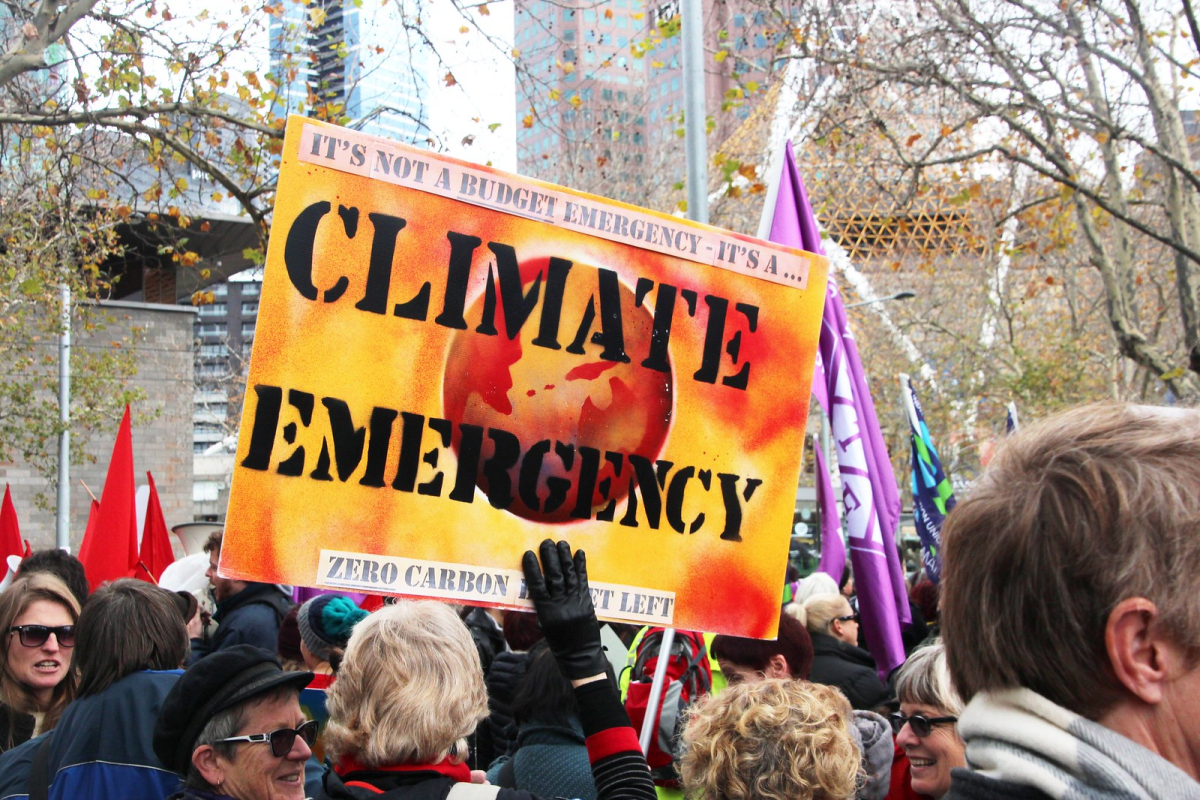Support strong Canadian climate journalism for 2025
This story was originally published by Grist and appears here as part of the Climate Desk collaboration.
Five years ago, when young people started skipping school on Fridays to protest rising carbon emissions, some climate advocates sensed a disconnect. The words commonly used to describe how fossil fuels were heating the planet — climate change, global warming — felt bland and understated. They didn’t capture the stakes. The young Swedish activist Greta Thunberg summarized the sentiment in a viral tweet: “Can we all now please stop saying ‘climate change’ and instead call it what it is: climate breakdown, climate crisis, climate emergency, ecological breakdown, ecological crisis, and ecological emergency?”
This kind of evocative language had already crept into news articles and political discussions as people fretted over whether “warming” sounded too pleasant, or whether “change” was too vague. In 2018, “climate crisis” became part of the name of a House committee; the next year, The Guardian adopted “global heating” in its newly spiced-up vocabulary for climate coverage and Telemundo announced it would start using “climate emergency.”
The intuition was that using more dramatic language would generate more concern among the public. But, according to an emerging body of research, these terms don’t appear to be working as intended — and might even backfire.
If anything, “climate crisis,” “climate emergency,” and “climate justice” generate less worry than the phrases they were supposed to replace, according to a study out last week in the journal Climatic Change. Researchers from the University of Southern California found that around 70 per cent of U.S. residents said they were concerned about “climate change” and “global warming,” compared to 65 per cent for the “crisis” and “emergency” framing, and 48 per cent for the “justice” framing.
Wändi Bruine de Bruin, the study’s lead author and a professor of public policy at the University of Southern California, chalks this up to the novelty of the supposedly more evocative terms. Only 33 per cent of those surveyed said they’d heard of “climate justice” before. “You can’t be concerned about something that you’re not familiar with,” she said. The results suggest the term may be polarizing, with just 23 per cent of Republicans concerned about it, compared to 71 per cent of Democrats.
The study, which surveyed more than 5,000 people, gave each person a series of questions that contained just one of the five phrases. People were broadly supportive of climate-friendly policies, and even willing to adopt low-carbon behaviors such as eating less meat, but the wording of the specific phrases didn’t change their answers much. “The thing is, a lot of people are already concerned about climate change, so worrying about the word for ‘climate change’ is probably not the key way forward to motivate people,” Bruine de Bruin said. Half of Americans now say they’ve personally experienced the effects of global warming, according to recent surveys, and almost two-thirds are worried about it.
Bruine de Bruin decided to look into the effects of terminology after finding that the public was perplexed by jargon used by scientists and advocates, such as “mitigation” and “carbon-neutral.” When she presented her research, Bruine de Bruin fielded lots of questions about whether it would be more effective to use a term like “climate crisis” or “climate emergency.”
Her findings are in line with a previous study from 2021, which found that reading those two phrases in news articles didn’t affect people’s emotional response to climate change, their support for policies to address it, or their belief that action could have an impact. In one instance, researchers found that the use of “climate emergency” could make news organizations come across as slightly less trustworthy.
More recent studies seem to be pointing in a similar direction. In a preliminary paper, researchers at New York University analyzed the effects of 10 phrases — including contenders such as “carbon pollution,” “greenhouse effect,” and “global boiling” — on more than 6,000 people across two studies, one spanning 63 countries, and another in the United States. They found that most people responded that they were willing to engage in climate action, but the terms in question had no effect on their enthusiasm.
“The key takeaway is that focusing on compelling narratives, concrete and actionable information about climate consequences and solutions, might be more effective than relying on specific terminology to drive behavior change,” said Danielle Goldwert, a co-author of the preliminary study and a researcher at New York University, in an email.
It turns out that people don’t need special words to make them worried. What they might need more of are concrete examples of meaningful action to take — going deeper than a laundry list of hard-to-achieve items like “ditch your car” and “decarbonize your home” — and role models who can show them how to do it.
Bruine de Bruin said that one possible reason that people who care about climate change might fail to act on their fears is that they feel alone in their concerns and unable to make a difference.
“If that’s true,” she said, “then communication should focus more on making it clear that we’re all in this together.”




Comments
Hear, hear, bravo, and even "duh". I've been eye-rolling at the CNO using "climate crisis" and "emergency" and all that, from the start.
"Emergency" means "drop everything else until we can do the everything else in safety". Whereas Greta Thunberg's children will born, live, and die of old age with the "climate emergency" ongoing. For them, it's just the world, it's just life.
And we have to live our way through it. We have to continue living, making homes and families, raising them, the whole time.
So, yeah, people hear "emergency", look around, don't see one at this moment, and find you've used the wrong word.